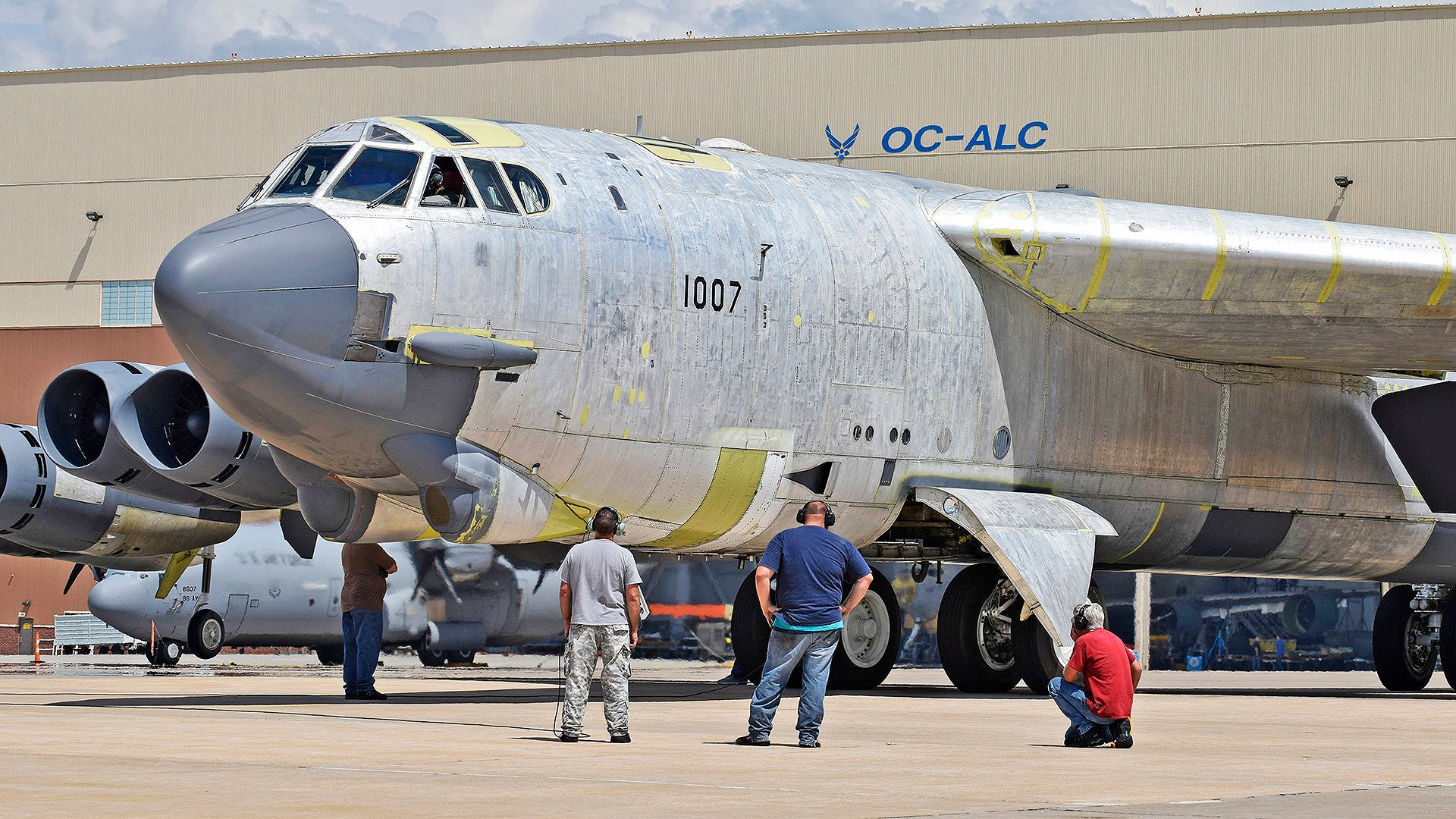It took 19 months to turn 55 year old B-52H 61-007 “Ghost Rider” from a dusty rattlesnake shade in the Arizona desert a fully mission capable aircraft, delivered to the 5th Bomb Wing at Minot AFB in North Dakota.
Last time I wrote about the resurrected Stratofortress was back in February of 2015, after it had been pulled out of Type 1000 storage at Davis Monthan AFB’s boneyard and ferried to Barksdale AFB in Louisiana. At Barksdale, Ghost Rider had systems from a partially burned B-52H transferred to it. The bomber was then flown to Tinker AFB in Oklahoma for a total depot-level refurbishment.

It took a whopping 45,000 man-hours to get the jet fully operational, and the aircraft needed an additional 7,000 hours of work compared with a normal B-52H’s depot-level maintenance. This was due to the fact that the jet had been sitting stagnant for so long, and that Ghost Rider’s systems needed to be upgraded so they would be on par with other B-52Hs in the fleet. Tinker’s portion of the $13M project was spread over 272 days.

In a USAF press release, Charles “Chuck” Alley, director of Tinker’s 565th Aircraft Maintenance Squadron, described how stubborn the jet was during its flight testing, stating:
“I told people during test flight that because the aircraft sat in the desert so long, we’re knocking all the ghosts out of it. It seemed like every time it came back it had two or three different things wrong with it.”

Even with all the additional work, the jet will be delivered 90 days earlier than planned, an amazing feat considering all the work and challenges that were involved. This was the first time a B-52H has been pulled out of storage and returned to the fleet. 12 other examples remain in type 1000 storage at Davis Monthan AFB, and it looks like the same units and commands that helped resurrected Ghost Rider will be doing it all over again, following the recent loss of a B-52H during takeoff from Andersen AFB, in Guam.
























76 B-52Hs are mandated to fill the ranks of USAF’s bomber fleet and they make up the vast majority of America’s strategic bomber leg of the nuclear triad (20 B-2s make up the rest). In the last decade and a half they have also been hard at working taking on Al Qaeda, the Taliban, and now ISIS. B-52s are now receiving major upgrades and are slated to stay in the USAF inventory until at least the 2040s, but it is quite likely they will remain in service longer than that in one form or another.
Contact the author Tyler@thedrive.com
